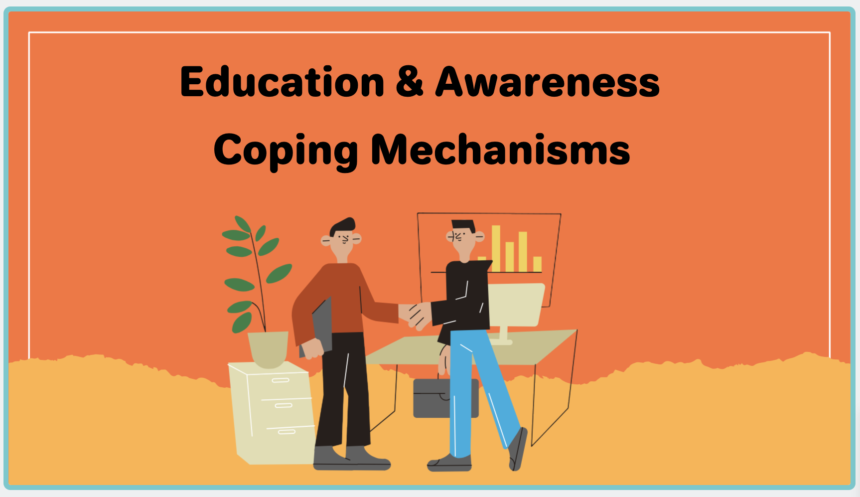Peer support refers to a system of giving and receiving help based on shared experiences among individuals. It is a dynamic interpersonal relationship that can be essential for various demographic groups, particularly military veterans. This group often faces unique challenges, including the transition to civilian life, managing the effects of trauma, and coping with mental health issues. The significance of peer support in this context cannot be overstated as it cultivates an environment where veterans can connect with one another, facilitating healing and resilience.
Veterans possess a distinct set of shared experiences that can foster understanding and empathy. The stress of military life, exposure to combat situations, and subsequent reintegration into civilian society create a unique psychological landscape. Peer support systems provide an invaluable resource, allowing veterans to communicate openly about their feelings, struggles, and coping mechanisms with those who have walked similar paths. By promoting dialogue, these networks serve as a vital source of comfort, reducing isolation and enhancing the sense of belonging.
Moreover, peer support goes beyond casual friendship; it encourages veterans to share not only their challenges but also their triumphs. Celebrating achievements within these communities reinforces a sense of hope and purpose. These connections can boost mental well-being, as they instill a collective strength that encourages proactive approaches to personal issues. In an era where mental health awareness is surging, peer support among veterans emerges as a critical component of comprehensive mental health care.
This introduction sets the stage for a deeper exploration of peer support mechanisms tailored specifically to the needs of veterans. Understanding these systems allows for enhanced dialogue around the support frameworks that are most effective in promoting resilience and well-being.
Understanding the Veteran Experience
The experience of military veterans is often characterized by a complex array of challenges that can have significant implications for their mental health and overall well-being. In the UK, many veterans face unique difficulties as they transition from armed forces to civilian life. One of the most pressing issues is Post-Traumatic Stress Disorder (PTSD), which can often result from experiences during service that are traumatic or life-threatening. PTSD is not just a personal struggle; it affects relationships, employment prospects, and daily functioning. The resulting anxiety and flashbacks can severely hinder a veteran’s ability to reintegrate effectively into society.
Moreover, the feelings of isolation that many veterans experience can exacerbate mental health issues. After years of camaraderie and teamwork, returning to a non-military environment can lead to a sense of disconnection. Veterans may find it challenging to relate their experiences to family and friends who have not shared similar circumstances, fostering a feeling of loneliness. This isolation can contribute to anxiety, depression, and a sense of helplessness, making it even more critical for veterans to seek out supportive communities.
Reintegration into civilian life often involves navigating various bureaucratic processes, such as accessing healthcare and securing employment. These challenges can provoke stress and frustration, contributing to the deterioration of mental well-being. Thus, the need for peer support networks becomes evident. Veteran peer support groups create an atmosphere where shared experiences foster understanding and camaraderie. These networks not only provide emotional support but also offer practical advice on navigating civilian challenges, ultimately playing a vital role in enhancing the mental health and resilience of veterans.
The Role of Community in Healing
The significance of community in the healing process for veterans cannot be overstated. For many individuals returning from military service, the transition back to civilian life can be fraught with challenges, including feelings of isolation and disconnection. Connecting with fellow veterans fosters a sense of belonging and offers support that is often critical for recovery. Many veterans find that engaging with peers who share similar experiences creates a bond that is both understanding and empowering.
Peer support networks allow veterans to share their stories, both the struggles and the triumphs, in an environment that promotes empathy and validation. Such connections can lead to a renewed sense of purpose, as veterans find avenues to contribute to their communities through mentorship or volunteer work. In fact, testimonials from veterans reveal how pivotal these connections are in their paths to resilience. For instance, one veteran recounted how joining a local veterans’ group not only provided companionship but also opened doors to various resources, from counseling to employment opportunities.
Moreover, the camaraderie developed within these communities helps alleviate the psychological burdens many veterans face, such as PTSD or depression. Engaging in group activities, whether it be recreational outings, workshops, or support meetings, reinforces the idea that no veteran is alone in their journey. A fellow veteran shared how simply participating in group hikes led to a significant decrease in feelings of anxiety and loneliness, illustrating how community engagement plays a vital role in emotional and psychological recovery.
Ultimately, community connections cultivate an environment that encourages growth and healing. By fostering relationships with those who truly understand their experiences, veterans can navigate their challenges with enhanced resilience and a renewed outlook on life.
Creating Peer Support Networks
Peer support networks play a vital role in helping UK veterans navigate the complexities of their experiences post-service. These networks can take various forms, including local support groups, online forums, and national organisations, each offering unique advantages tailored to different needs.
Local support groups often provide veterans with a sense of community and personalization. These groups are typically facilitated by fellow veterans who understand the specific challenges their peers face. By participating in these gatherings, veterans can connect face-to-face, sharing their stories and fostering a bond built on shared experiences. Many of these local groups are supported by charities or veteran organizations, providing structured activities and resources aimed at mental well-being.
Online forums present another significant avenue for peer support, particularly for those who may have mobility issues or prefer the anonymity of virtual interaction. These platforms facilitate open discussions on various topics including mental health, employment, and family life. They allow members to ask questions, seek advice, and share coping strategies in a safe and supportive environment. Websites such as the Veterans’ Gateway and forums dedicated to specific issues, such as PTSD, have proven particularly helpful in building these online communities.
National organisations also play a crucial role in creating networks for peer support. Groups like the Royal British Legion and Combat Stress offer resources that facilitate connections among veterans on a broader scale. These organisations provide numerous programs, events, and workshops aimed at promoting resilience, helping veterans to not only find support but also contribute to the well-being of others.
Veterans looking to engage with these peer support networks can start by seeking information online or through local veteran service offices. By actively participating in these networks, veterans can embrace the power of shared experiences and conversations, ultimately leading to enhanced wellbeing and recovery.
Success Stories: Transformative Experiences
The impact of peer support on the mental health and overall quality of life of veterans is profoundly illustrated through numerous success stories. One such narrative involves a veteran named John, who faced significant challenges following his service. Struggling with anxiety and PTSD, John initially felt isolated and reluctant to seek help. However, upon discovering a peer support group tailored for veterans, he took the brave step to participate. Through sharing experiences with fellow veterans who understood his struggles, John found solidarity and an invaluable support network. Over time, he reported improvements in his mental health, stating that the connections he forged not only eased his feelings of loneliness but also provided practical strategies for coping with his anxiety.
Another compelling story is that of Lisa, a female veteran who encountered difficulties reintegrating into civilian life. Lisa joined a peer support program specifically designed for women veterans, where she found a safe space to discuss her experiences and emotions. The group’s shared understanding helped her to process her military experiences and built her self-esteem. As a result, she began participating in community activities, thereby expanding her social circle. Lisa noted that the mutual support she received from her peers transformed her feelings of alienation into a sense of belonging and purpose.
Furthermore, the experience of David, a veteran who battled substance abuse, underscores the significance of peer support. Engaging with a substance abuse recovery group comprised of fellow veterans not only enabled David to confront his addiction but also fostered a supportive environment where he felt understood. His peers provided encouragement and accountability, aiding his recovery journey. David’s story highlights the immense power of community in overcoming personal struggles, demonstrating that veterans can achieve remarkable transformations in their mental health when they come together to support one another.
The Science Behind Peer Support
Peer support has gained recognition as a beneficial approach to addressing mental health challenges, largely backed by substantial psychological and sociological research. Studies indicate that individuals often feel more comfortable discussing their issues with peers, leading to an increased likelihood of open communication about mental health. This openness is fundamental to fostering a supportive environment where individuals can share experiences, strategies, and emotional resources.
Research published in the journal Psychological Bulletin illustrates that peer support significantly reduces feelings of isolation and improves emotional well-being. One landmark study highlighted in this research involved participants in peer-led support groups, which demonstrated an enhancement in overall mental health outcomes compared to control groups that did not have peer engagement. Such findings suggest that the shared experience of dealing with similar issues can facilitate feelings of understanding and acceptance, which are crucial components of recovery.
Moreover, sociological insights emphasize that peer support networks serve as a buffer against stress. According to the American Journal of Community Psychology, these networks can alleviate emotional distress by providing individuals with resources and encouraging coping strategies. Participants in peer support groups reported increased motivation and resilience, which can significantly impact their mental health trajectories. This is particularly relevant for vulnerable populations, such as those facing chronic illness or mental health disorders.
The mechanisms underpinning peer support are multifaceted. They include not just emotional support but also the exchange of practical advice and coping techniques, enabling individuals to navigate their challenges more effectively. The psychological principle of social validation reinforces this phenomenon, where individuals feel reassured when they realize others face similar struggles. Overall, extensive research substantiates the claim that peer support can lead to better mental health outcomes, further solidifying its place within therapeutic interventions.
Challenges and Limitations of Peer Support
While peer support presents numerous benefits, it is critical to acknowledge its inherent challenges and limitations. One significant concern in peer support networks is the potential for the reinforcement of negative behaviors. Informal support groups among veterans, for example, may unintentionally validate maladaptive coping mechanisms, such as substance abuse or avoidance strategies. When members provide each other with encouragement to engage in such behaviors, it can hinder personal growth and recovery. Furthermore, the shared experiences of trauma may lead to unintentional competition, where individuals compare their struggles and adversities. This can foster a sense of inadequacy rather than promoting healing, emphasizing the need for conscious facilitation within these networks.
Another vital factor to consider is the necessity for safe and inclusive support environments. Veterans seeking assistance may come from diverse backgrounds, which can influence their willingness to engage in peer support systems. Peer support groups must be designed to embrace inclusivity, ensuring that all participants feel valued and respected. If veterans perceive the environment as unwelcoming or judgmental, it may deter them from seeking the assistance and camaraderie that peer support provides. Thus, it is essential to establish ground rules and offer training for group facilitators to create a safe space for discourse.
Moreover, the effectiveness of peer support can be dependent on the availability of appropriate resources and adequate emotional capacity among peers. Participants may not always possess the necessary tools to provide guidance or support effectively. Consequently, the sustainability of peer support networks can be jeopardized when members are overwhelmed by their challenges, ultimately limiting the space’s overall effectiveness. Recognizing these challenges is fundamental to improving peer support systems for veterans, ensuring that they serve as constructive platforms for healing and resilience.
How to Foster Peer Support in the Community
Fostering peer support within a community, especially for veterans, requires thoughtful planning and inclusive initiatives that resonate with the unique experiences of this demographic. One effective approach is to create outreach programs that directly target veterans and their families. These initiatives should focus on the specific challenges that veterans face, such as mental health issues, reintegration into civilian life, and feelings of isolation. Hosting community events tailored for veterans can facilitate connections and provide a platform for sharing experiences.
Promoting awareness of mental health issues among veterans is paramount. This can be achieved through educational workshops, seminars, and informational campaigns that highlight the importance of seeking help and the resources available for mental health support. Collaborating with local organizations, including mental health professionals, can enhance these efforts by ensuring that accurate information is disseminated. Emphasizing the value of peer support in these discussions can encourage veterans to engage with one another, fostering an environment where they feel safe to share personal experiences and seek guidance.
Encouraging local veterans to actively engage with their peers can be facilitated through the establishment of support groups or regular meetups. These gatherings not only provide a space for veterans to discuss their challenges but also assist in building a sense of community. Leveraging technology, such as social media platforms or dedicated community forums, can enhance participation and keep veterans connected between meet-ups. Promoting stories of resilience and solidarity among veterans through these platforms can motivate others to participate, thereby strengthening community bonds further.
Ultimately, creating a welcoming atmosphere that values and respects the contributions of veterans is crucial. By implementing these strategies, communities can effectively foster peer support networks that benefit veterans and enrich the overall community experience.
Conclusion: The Path Forward
Peer support plays a vital role in the lives of veterans, providing not only companionship but also a network of understanding and shared experiences. The collective strength found in these connections cannot be underestimated. Veterans often face unique challenges when transitioning to civilian life, and having peers who can relate to their experiences fosters a sense of belonging and reassurance. By engaging with fellow veterans, individuals can gain insight into overcoming obstacles and develop coping strategies that are informed by real-life experiences.
It is essential for veterans to recognize the power of their community. The bonds formed through shared struggles can alleviate feelings of isolation, which many veterans encounter after service. Encouraging communication and interaction among veterans can lead to stronger networks that serve as a lifeline in moments of need. Connecting with organizations dedicated to supporting veterans can facilitate these interactions, whether through formal meetings, social gatherings, or online forums. These platforms offer opportunities for veterans to share their stories, offer encouragement, and create lasting friendships.
Moreover, it is important for individuals to take proactive steps to reach out. Whether initiating a conversation with a fellow veteran or participating in local support groups, every action contributes to the formation of a supportive community. Encouraging veterans to share their journeys and challenges not only aids in their healing process but also strengthens the network of solidarity. Remember, no veteran should feel alone in their journey. Peer support is a powerful resource that is always within reach, fostering resilience and hope among those who have served. Engaging with peers offers a path toward healing and reinforces the notion that together, veterans can navigate life’s challenges more effectively.






